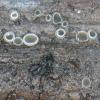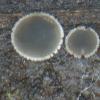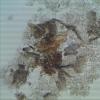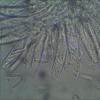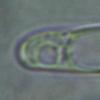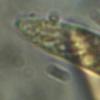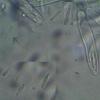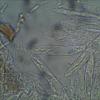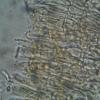
17-02-2026 17:26
 Nicolas Suberbielle
Nicolas Suberbielle
Bonjour à tous, Je recherche cette publication :

08-12-2025 17:37
 Lothar Krieglsteiner
Lothar Krieglsteiner
20.6.25, on branch of Abies infected and thickened

17-02-2026 13:41
Isabelle CharissouBonjour, est-ce que quelqu'un pourrait me fournir

16-02-2026 18:34
 Thierry Blondelle
Thierry Blondelle
Bonjour,La micro de cet anamorphe de Hercospora su

16-02-2026 21:25
 Andreas Millinger
Andreas Millinger
Good evening,failed to find an idea for this fungu

16-02-2026 17:14
Joanne TaylorLast week we published the following paper where w

16-02-2026 16:53
Isabelle CharissouBonjour, quelqu'un pourrait-il me transmettre un
Pyrenopeziza s/ Cirsium palustre.
Luc Bailly,
08-02-2012 18:25
Cela fair plusieurs fois que je ne parviens pas à mettre de nom là-dessus. Hormis un nom de genre: Pyrenopeziza.
Récolté le 13.08.11, sur tiges mortes de Cirsium palustre. Réserve naturelle domaniale de la Grande Fange de Bihain, Vielsalm, prov. Luxembourg, B., env. 550 m d'altitude.?
Apoth. sessiles, en groupes ou colonies, en coupe fermée puis aplatie, -> 0.8 mm. Marge fimbriée. Couleur gris-brun fuligineux, très sombre à l'état jeune. Excip. semblant un peu poilu ou du moins nettement furfuracé.
Exc. ectal banal, text. glob., brun. Poils atteignant 45 µ.
Asques 8-sp., sp. bisériées, IKI BB, (30) 38-50 x (5.2)6-7(7.5) µ. Crochets non remarqués ou absents.
Sp. un peu asymétriques, parf. symétriques, hyalines, huile = 2, non septées, (7)8-10(11) x (1.5)1.8-2.2 µ.
Paraphyses cylindriques, à peine réfringentes, x 2.5-3-3.5 µ p. ex. KOH nul.
Amitiés - LUC.
Raúl Tena Lahoz,
08-02-2012 20:32

Re : Pyrenopeziza s/ Cirsium palustre.
Maybe Pyrenopeziza urticicola.
Salut,
Raúl
Salut,
Raúl
Luc Bailly,
09-02-2012 16:17
Re : Pyrenopeziza s/ Cirsium palustre.
Yeah, but I think I excluded that one due to the size of the spores, way too big in my sample IMO. (I corrected the data's. Meh, distraction.)
Oh, so, Bernard Declercq's key gives me Pyrenopeziza escharodes, which matches fine with the size of spores and hair, and which gives oil -> 1.5, which is a bit lower than on my sample, but noot much. Except if one has a better solution, I think I'll stick with P. escharodes.
Cheers - LUC.
Oh, so, Bernard Declercq's key gives me Pyrenopeziza escharodes, which matches fine with the size of spores and hair, and which gives oil -> 1.5, which is a bit lower than on my sample, but noot much. Except if one has a better solution, I think I'll stick with P. escharodes.
Cheers - LUC.

